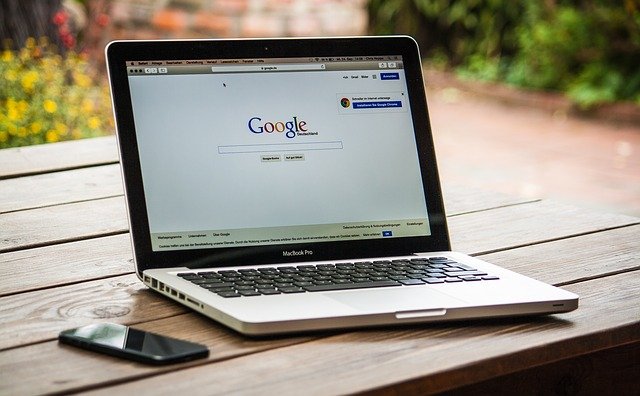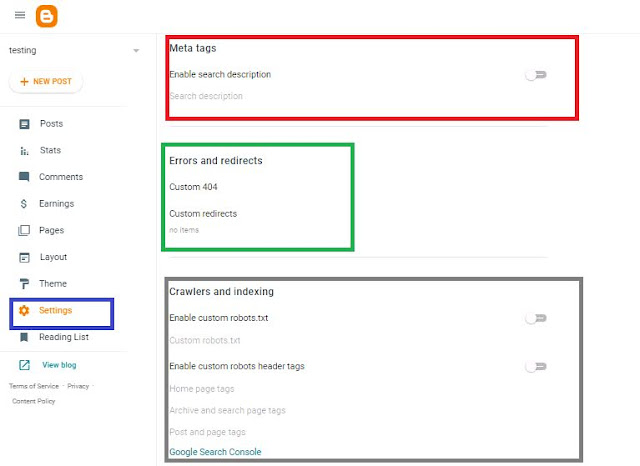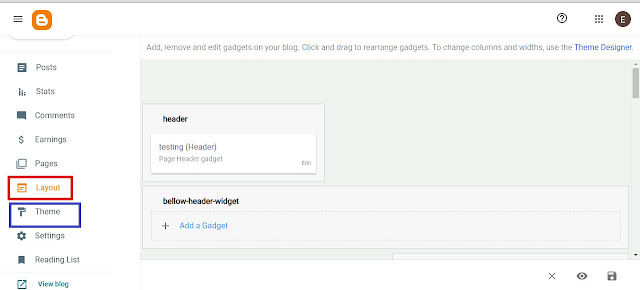How to start a blog on Blogspot.com in 2021-2022
Starting a blog in 2021-2022 could be a fantastic idea because blogging allows you to express your views and discuss everything with the rest of the world. Also, if you are knowledgeable in this subject, you may earn good money from it.
Every day, millions of articles/posts/stories are published on the internet, and over 200 thousand new blogs are launched. It equates to more than two new blogs being produced every second.
Isn't it amazing? So many blogs with diverse subjects are popping up on a regular basis, and many of them have become renowned throughout the world. Now it's your time!
So, if you're new to blogging and want to establish a blog for free, you've come to the perfect spot. In this post, I'll demonstrate how to set up a blog on blogger.com (Google's free blogging platform).
Before we begin, allow me to share some fascinating Google Blogger facts with you.
Google Blogger - What is it?
Create a free blog on Blogger.com using the blogspot.com subdomain (for example, your blog name at yourblogname.blogspot.com) or buy a domain to have your own website (for example, www.yourdomain.com).
A blog on Google Blogger has several advantages.
As you can see, starting a blog with Google Blogspot is a pretty simple process.
So you can rely on Google's trust and trustworthiness.
No one pays a cent to use Blogger.
When it comes to flexibility and features, Blogger.com is the clear victor among the free blogging systems accessible on the web (including WordPress, Weebly, Wix, Tumblr, and others).
In place of the free.blogspot.com subdomain, you can create your own custom domain there.
Create a free SSL Certificate for your WordPress blog by following these simple instructions (by simply turning on HTTPS).
It doesn't matter if you're utilizing a blogspot subdomain or your own custom domain.
Simple and responsive templates are available for free, as well as the ability to upload your own theme. So you can install them and customize them as you like.
Features like the template editor, designer and layout editor are quite useful and may make a huge difference on your workflow. It allows you to change the code of your theme and personalise it as you see fit, with the aid of the template editor. Blogger's template designer lets you design your blog's basic features and customize its appearance with custom CSS code. The Layout Editor allows you to drag and drop various widgets at different locations on your blog.
The mechanism for publishing and managing blog posts is incredibly simple to use.
Communication system is the best. Alternatively, you may set up Facebook, Disqus, Google Plus Comments using the site's default comment system.
It gives all the tools necessary to produce a great post. Your blog post may be scheduled, mistakes can be corrected, and redirection can be initiated using this tool. It also allows you to update or amend your article's search description, labels, location and custom permalinks.
With Google AdSense and other affiliate marketing networks, you can simply monetize your site.
You can take a backup of your Google Blogger data, just as with other CMS (Content Management Systems). The blog can be restored if anything goes wrong.
By using their plugins, you may quickly transfer to other platforms (such WordPress, Wix, Weebly) without losing everything.
Blogger.com is a free service that allows you to create and maintain a blog.
How to establish a blog with Blogger - Step-by-Step Guide
How to Create a Free Blog with blogger.com
Sign Up for a Google Account
Access to your blogger dashboard requires that you have a Google Account (see below for more information). Gmail or any other Google product is required. Skip this step if you already have a user account.
Sign in to your Blogger Account
SIGN IN to your blogger.com account using your Google credentials.
Choose a Blogger Profile
You'll be prompted to set up your Blogger profile the first time you enter into your account. Google profile or restricted blogger (BlogSpot) profile are also options. I'll propose that you choose a Google profile as your next step.
Create your blog
In the next step you will see the blogger dashboard, you can choose “New blog” or “CREATE NEW BLOG” option to.
Name, URL and theme your blog.
In the new box that appears after choosing the "new blog" or "create new blog" option, you'll need to enter your blog's information. You'll need to input your blog's name, URL, and theme. "Create blog" is the button you need to click to complete your initial blog setup. If you make a mistake in your choices, you may always go back and make changes later on.
Your blog should be served for lunch.
Your blog dashboard will appear once you've completed the basic blog setup procedure, as seen in the picture below.
It's time to start posting on your new Blogger site. By clicking the "View Blog" link, or by putting your blog address (URL) into any web browser, you may access your blog.
Great! You have completed the process of creating a Google blog. Now that your blog is up and running, it's available to everyone.
A blog is not enough. After creating your blog configuration, you will need to make a number of adjustments. For improved search engine visibility and user experience, it's time to optimize the site.
Blogger Blog Optimization: Steps to Improve Your Blog
This option may be found in the "Settings" menu on the left-hand side of your blog's dashboard. To change some items, click the arrows to the left.
Add a description to your blog on Blogger. This will assist your readers and search engines understand what your site is about and what it is about. Under the main settings panel, you may access the "basic" settings.
Add Google Analytics Tracking ID
Open your chrome browser and type Google Analytics ->> you will see analytics.google.com in the top of browser ->> click on it and you will redirects on Google Analytics website.
Now create an account it's very simple and after creating account and adding property you will see the Tracking ID like UA-1234567-1 in the Admin area.
Copy tracking ID and paste into blogger (Google Analytic Property ID) section.
Add a Favicon
Click the link below and make a favicon and upload it into Favicon section.
Adding a custom domain
In this section you can add your own custom domain if you want and then redirect your blog on your custom domain Example www.yourdomain.com.
Edit Comments, Post, Share Settings on Blogger
As well as optimizing your site, you can also set up commenting restrictions for your blog visitors in this area. Click on the help sign (question mark symbol) to receive additional information about any of these options.
Modify or Edit Blogger Search Preference Settings for Optimizing Blog into Search Engines
Optimize your blog for search engines preferences in this section. As a result of these settings, you'll be able to improve your search engine rankings.
Add Meta Tags:
Meta tags can be edited in a number of ways, including A meta tag is a quick and succinct description of your blog or website, and is often used in search engine optimization. Installs after the page title. After reading the headline of a post, the user of a search engine focuses on the article's description. Please keep in mind that your meta description must be connected to what you have published on your blog in order to be effective. There are a maximum of 150 characters in your meta tag description.
Custom page not found:
In the event that someone accesses your site using a URL that no longer exists, you can tell them that the page does not exist. Instruct them on what to do with a bespoke text message or HTML message that you create yourself.
Custom redirects:
If your permalinks are too long, you may shorten them using this function. You can also redirect broken links to your site. Custom redirection only works inside the same blog URL, thus this won't work if your blog domain name has changed.
Crawlers and indexing:
Incorrect setting can affect your SERP (Search engine ranking position) or you may lose your search engine exposure. If you're not an expert, stay away from this section.
Your robots.txt file and Custom Robot Header tags can be optimised by reading the text below.
For your blogger blog, you've simply completed the necessary SEO settings. Customize your blog now.
How to Customize your blogger blog?
"Theme" and "Layout" options may be found in your blog's dashboard's left side. Your blogger widgets, logo setting, text colour and style editing, and many other customizations may be done here.
Blogger Customization in theme and Layout Section
A template can be selected from the selection, or you can submit your own.
Backup/Restore option is located on the right side of the Theme dashboard. You may take a backup or restore your blog template at any moment.
This will bring up a new template editor where you may make some modifications, such as altering the font design and colors, adding Custom CSS or picking a layout, etc. By clicking on the Customize button, a new template editor will be opened.
You may edit the template's HTML code by clicking on the "Edit HTML" link.
For your site, you may select a Mobile Template.
Simply drag and drop your blog's layout in this area to customize it.
In the Layout Editor, you may add widgets to numerous locations.
Favicon, blog header, footer, sidebar and other elements may be edited under the layout area.
To alter the layout widths and other parameters, you may utilize the Blogger Theme Designer tool.
So, I hope you've finished setting up and customizing your blog. Posts and pages that will attract visitors to your blog are now ready for publication.
How to Publish an Article on Blogger
Click on "New Post" or "Create a New Post" option from your blog dashboard whenever you are ready to publish your first article.
Blogger's post editor is now visible. Screenshot of blog post editor -
At the Compose area, get ready to compose a post in a correct format. Similar to MS Office or Google Docs, the blogger post editor is incredibly straightforward to use.
As soon as you have finished your article, select an appropriate post title and enter it in the post title field. Make your article more visually appealing by adding sub-headlines (if applicable), sub-headlines (if applicable), pictures (if applicable) and videos (if applicable). You are now ready to publish your blog post.
Congratulation for your first post! Now you’re ready for blogging.
Start producing more material on your blogger site and continue the process. Then you may apply for Google Adsense approval, or you can apply for any other advertising platform after posting a few decent stories(or articles). Your free blogger site is a great method to make money.
What else should you know about starting a free blog on blogger.com?
Make your site more appealing with a premium blogger theme.
If you are borrowing someone else's speech, be sure to give them credit.
Your blog should have a few sections like “About,” “Privacy Policy,” “Terms of Use,” “Disclaimer,” and “Contact Us.”
Your blogger blog will require you to first purchase a domain and then set it up.
You may create profiles for your blogger blog on social media sites such as Facebook, twitter, YouTube, and more.
A SSL certificate may be installed on your Blogspot blog (Google provide free SSL certificates for all site, and you can easily configure it from your blogger dashboard).
Conclusion:
The following is my comprehensive instruction on how to establish a blog using Blogger. Let me know if you have any queries or doubts in mind by leaving a comment below.
If you find this tutorial useful, please share it with your friends and colleagues. As a result of your sharing, we're able to reach many more blogs.
Conclusion
💖 thank you so much for visiting our site, i hope you ve found value in this post How to start a blog on Blogspot.com in 2021-2022.and if so, Please subscribe,like our pages and also share it with your friends and follow our blog for more updates like this.
if you face any problems or issues regarding our website or have any question,suggestion,contribution or make a report. Please feel free to ask us in the comments section below or Contact us via contact us page










